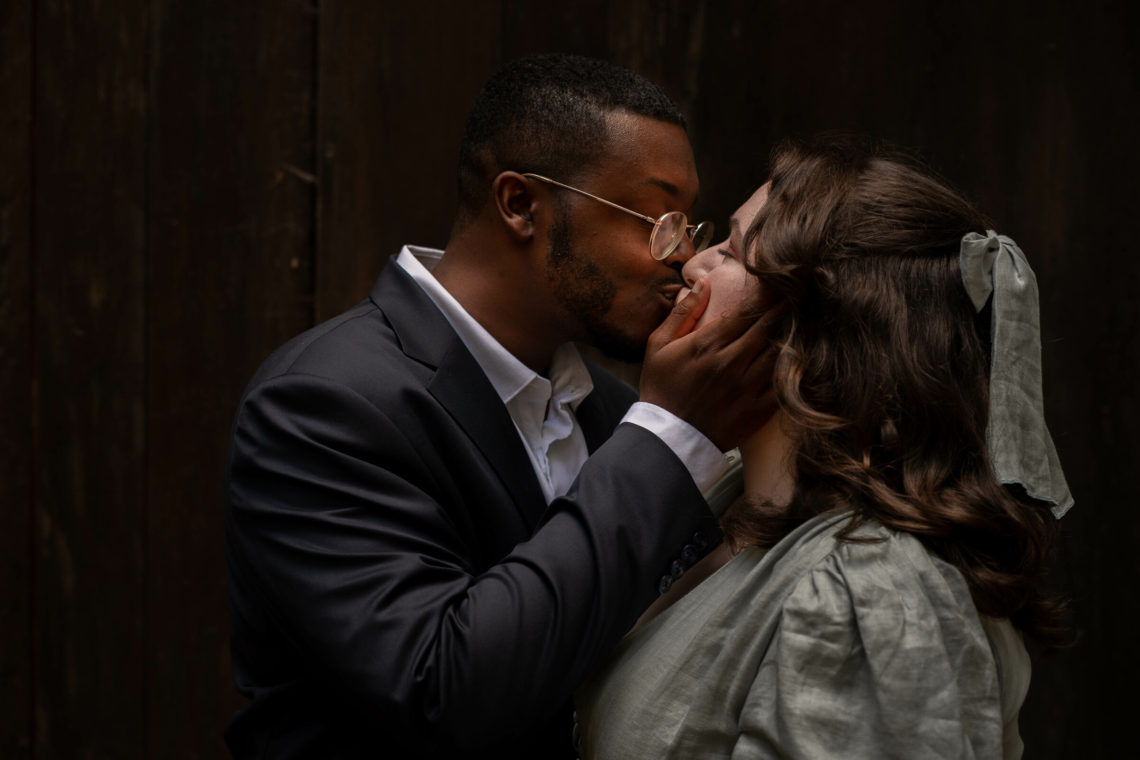
How To Get Married In France as Two Foreigners: Pre-Ceremony Organization
Is it possible to get married in France when both parties are foreigners? As Americans living in France, this is the question that Maria and I asked ourselves when we decided we were ready to start planning our wedding. The short answer is oui! After jumping through a few hoops, we successfully tied the knot in July at the Reims town hall. Keep reading to learn the ins and outs of getting married in France when neither partner is French.
Table of Contents
➤ Preliminary Information
➤ Necessary Documents
➤ Town Hall Appointment
➤ Our Complete Marriage Timeline
Preliminary Information
First, we turned to the internet in hopes of finding information about getting married in France as Americans. To our dismay, we couldn’t find much! While there’s tons of online information geared towards two French people or one French person and a foreigner looking to get married, there was a lot less about the specificities of getting married as two foreigners.
After our initial internet query fell flat, we decided to draft an email directly to the Hôtel de ville de Reims, or the town hall, explaining our situation. An agent quickly responded to us with a pré-dossier de mariage, a short, preliminary marriage application, that we filled out with our background information and marriage plans and returned via email.
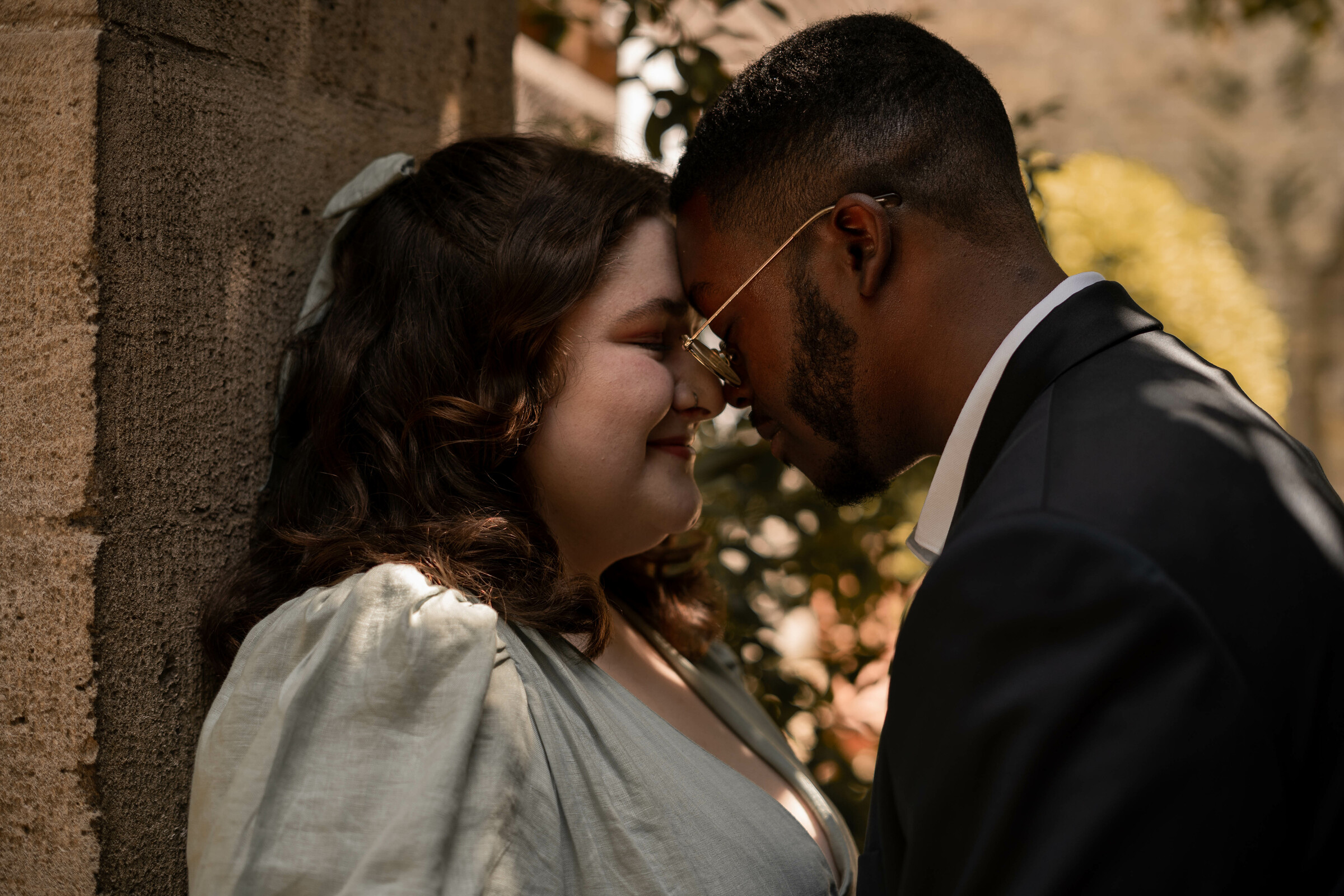
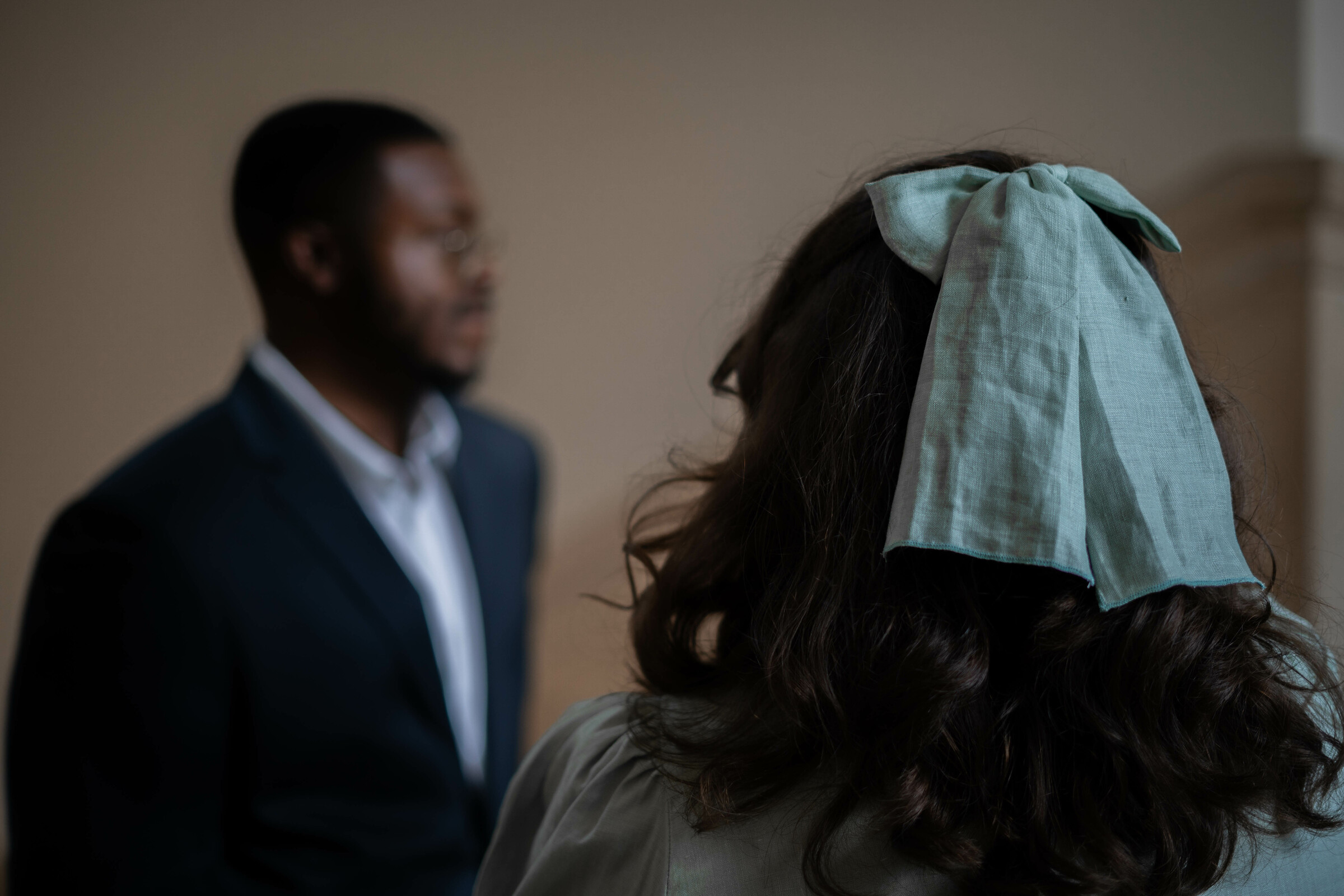
Next, an agent sent us a lengthy email containing all the details we needed to put together our dossier de mariage, or marriage application. The email informed us that we had one year to submit our dossier before our pré-dossier would be destroyed. At this point, we knew that we would be allowed to marry in France, and the real work of gathering our documents and planning our wedding began.
Necessary Documents
We were asked to include the following documents in our dossier.
L’original et la photocopie intégrale de vos pièces d’identité (Original and photocopy of your proofs of identity)
- We were given the option to provide photocopies of our passports, including the information page, all stamped pages, and all pages with visas attached, or the front and back of our residence cards. In an effort to be thorough, we decided to provide both.
Acte de naissance original (Original birth certificate)
- Our birth certificates took some strategic planning to obtain, and we had to solicit the assistance of trusted contacts in the United States. First, we ordered birth certificates online from our birth state’s Department of Health and had them delivered to our contacts’ homes. Then, our contacts sent them to be apostillés, or authenticated, by the Secretary of State. Once our contacts received the authenticated documents, they mailed them to us in France. Next, we got our birth certificates translated from English to French by a traducteur assermenté, or sworn translator. This process had to happen quickly, as the birth certificates needed to be issued no more than six months prior to the submission of our dossier.
La déclaration sur l’honneur établie en deux exemplaires (Two sworn statements)
- This document asked for our names, birthdates, professions, and addresses as well as those of our parents.
Un justificatif de domicile récent en original et en photocopie (Original and photocopy of a recent proof of address)
- We were asked to provide proof of address and given this non-exhaustive list of acceptable documents.
- Bail locatif (hors bailleur privé) [Lease (except from a private lessor)]
- Quittance de loyer (hors bailleur privé) [Rent receipt (except from a private lessor)]
- Facture d’un fournisseur d’énergie (Bill from energy provider)
- Avis d’imposition ou de non-imposition (Tax assessment)
- Attestation de l’employeur ou Pôle emploi (Certificate from employer or the Employment Office)
- …sauf facture téléphone portable (Cell phone bills not accepted)
- Though we clearly live in France, we had trouble coming up with acceptable proof of address and had to go back and forth with an agent at the town hall for a few days before we both finally found admissible documents. To give you an idea of how difficult it was, we’ll list some of the limiting factors we encountered. We rent our apartment from a private lessor; Maria hadn’t yet received her most recent avis d’imposition ou de non-imposition; Maria did not have an employer; neither of us were registered with Pôle emploi; our energy provider, EDF, does not provide acceptable monthly bills; our wifi provider, Bouygues Telecom, refused to put both of our names on the monthly bill; our certificats de scolarité (proof of student status) did not include our address; and our attestation de paiement (confirmation of payment) from CAF included both of our names but was only technically addressed to one of us.
- In the end, I was able to submit a bank statement and an attestation de paiement from CAF while Maria was able to submit a bank statement and an attestation de remboursement (confirmation of reimbursement) from l’Assurance maladie. We both had to submit two documents each because according to the strict rules of our town hall, none of the documents were sufficient proof of address on their own.
La liste des témoins remplie ainsi que la photocopie de leurs pièces d’identité (List of witnesses and photocopies of their proofs of identity)
- This document asked for our names as well as the names, ages, professions, and addresses of at least two, but no more than four, adult, francophone witnesses. We also had to provide proof of identity for each of our witnesses.
Certificat de célibat (ou non remariage) et certificat de coutume [Certificate(s) of legal capacity to marry]
- The United States does not provide their citizens with the typical certificat de célibat (ou non remariage) et certificat de coutume. Instead, we had to fill out an attestation sur l’honneur tenant lieu de certificat de célibat et de coutume, or sworn statement indicating our legal capacity to marry, that we downloaded from the United States Embassy in France website. This document needed to be completed no more than six months prior to the submission of our dossier.
Justificatif de domicile récent au nom des parents (Parents’ recent proof of address)
- Providing this document is necessary if the ceremony is to take place in a parent’s municipality rather than either of the future spouse’s municipalities. This did not apply to us, so we did not need to include it.
Acte de décès du précédent conjoint (Former spouse’s death certificate)
- Providing this document is necessary if either of the future spouses is the surviving spouse of a previous marriage. This did not apply to us, so we did not need to include it.
Livret de famille (Official family record book)
- Providing this document is necessary if the future spouses have children in common. This did not apply to us, so we did not need to include it.
Certificat du notaire (Notary’s certificate)
- Providing this document is necessary if the future spouses have drafted a marriage contract. This did not apply to us, so we did not need to include it.
Town Hall Appointment
Once we gathered all the aforementioned documents, we sent them via email to an agent at the Hôtel de ville who verified that everything in our dossier was valid and set up an in-person rendez-vous with us.
At the appointment, we turned in all of the physical, original, and photocopied documents that had been previously verified via email. We also brought our passports and student residence cards to prove our identities. We signed a number of forms confirming the details of our ceremony, our willingness to marry, and the accuracy of the marriage banns that would be posted publicly at least 10 days prior to our ceremony. Finally, we decided on a date for our marriage.
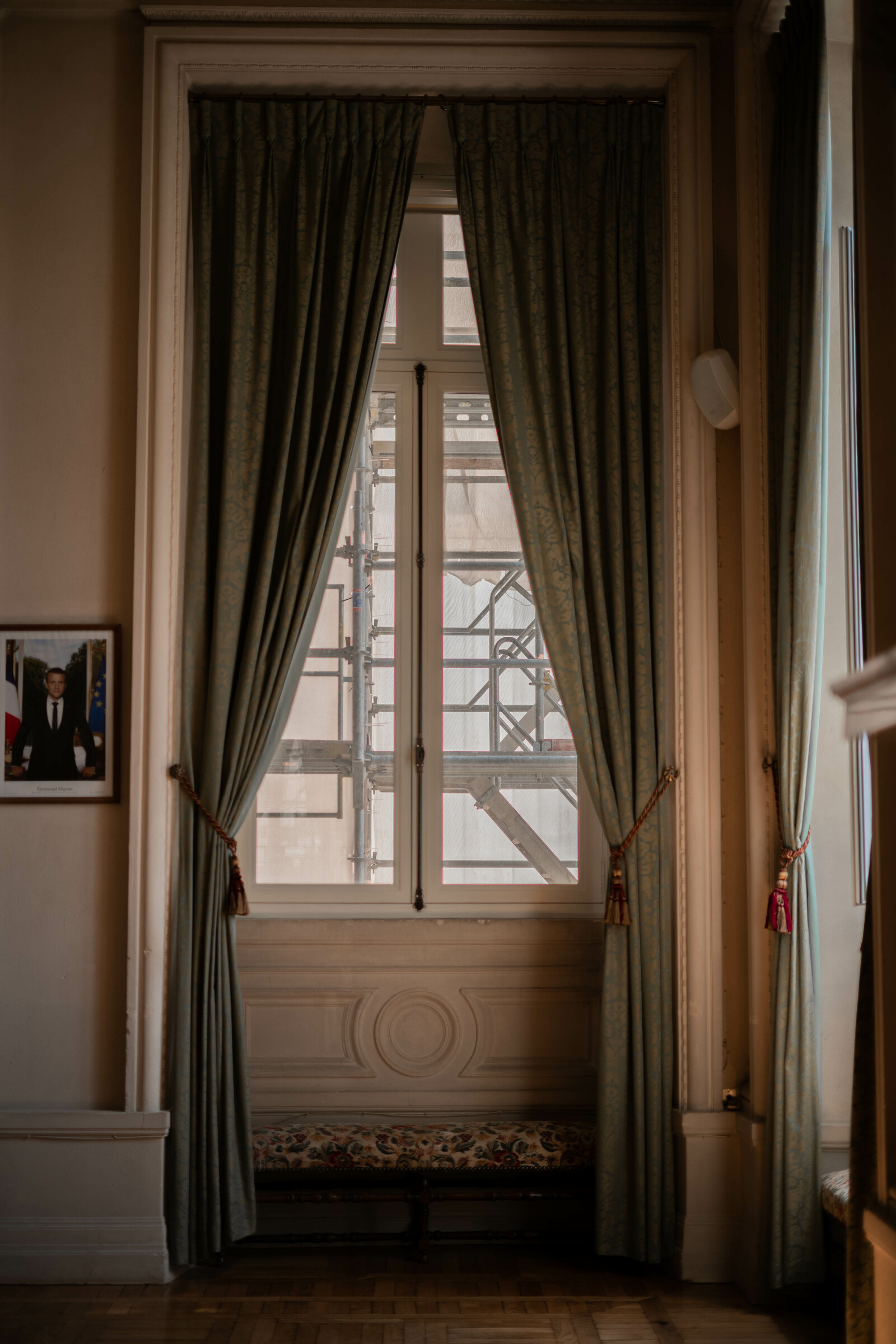

After notifying our witnesses of the date that we chose, we learned that there was a scheduling conflict for one of them. We immediately called the agents who allowed us to come back to the Hôtel de ville to move the date of our ceremony. We signed a form confirming our willingness to change the date and verified the accuracy of the newly-modified marriage banns.
Our Complete Marriage Timeline
- March 7, 2021: We send an email to the Hôtel de ville de Reims requesting information about getting married as foreigners in France.
- March 8, 2021: An agent from the Hôtel de ville responds with a pré-dossier de mariage.
- December 29, 2021: We submit the pré-dossier via email.
- December 31, 2021: An agent from the Hôtel de ville sends us a lengthy email containing all the details we needed to put together our dossier de mariage.
- January 6, 2022: We print and fill out birth certificate request forms from the Department of Health’s Office of Vital Records in our birth state.
- January 7, 2022: We mail our birth certificate request forms to the Department of Health’s Office of Vital Records in our birth state.
- January 10, 2022: La Poste notifies Jalen that his mail will be delayed due to a shipping error.
- January 22, 2022: Maria’s birth certificate request form arrives at the Department of Health’s Office of Vital Records. Estimated processing time is five weeks.
- February 5, 2022: Jalen’s birth certificate request form arrives at the Department of Health’s Office of Vital Records. Estimated processing time is three weeks.
- February 7, 2022: Maria’s birth certificate request is processed in two weeks and mailed to her trusted contact. Estimated shipping time is 15 to 20 business days.
- February 18, 2022: Jalen’s birth certificate request is processed in two weeks and mailed to his trusted contact. Estimated shipping time is 15 to 20 business days.
- February 28, 2022: Maria’s contact receives her birth certificate.
- March 1, 2022: Maria’s contact sends her birth certificate to be authenticated by the Secretary of State.
- March 5, 2022: Maria’s contact receives her authenticated birth certificate and scans it to her via email.
- March 14, 2022: Maria’s contact sends her authenticated birth certificate to her by mail.
- March 18, 2022: Jalen’s contact receives his birth certificate.
- March 24, 2022: Maria receives her physical, authenticated birth certificate.
- March 25, 2022: Jalen’s contact sends his birth certificate to be authenticated by the Secretary of State.
- April 5, 2022: Jalen’s contact receives his authenticated birth certificate and scans it to him via email.
- April 7, 2022: We send scans of our authenticated birth certificates to a sworn translator to be translated from English to French.
- April 9, 2022: Jalen’s contact sends his authenticated birth certificate to him by mail.
- April 11, 2022: Our witnesses agree to attend our wedding.
- April 12, 2022: We pick up the translations of our authenticated birth certificates.
- April 14, 2022: Jalen receives his physical, authenticated birth certificate.
- April 25, 2022: We send our dossier via email to an agent at the Hôtel de ville for verification.
- April 26, 2022: We do not receive confirmation of receipt, so we call the Hôtel de ville. An agent tells us that we need different justificatifs de domicile.
- April 26 – April 28, 2022: We work with an agent at the Hôtel de ville to find acceptable justificatifs de domicile.
- April 28, 2022: Our dossier is approved and we set up an in-person rendez-vous.
- May 11, 2022: We attend our in-person rendez-vous and set our date for July 23, 2022. Due to a scheduling conflict, we return and change the date to July 9, 2022.
- June 20, 2022: We receive a letter and infographic from the Hôtel de ville in the mail detailing the rules of proper conduct for the day of our ceremony.
- July 7, 2022: We receive an email from the Hôtel de ville reminding us that our wedding is scheduled for July 9, 2022.
- July 9, 2022: We get married!
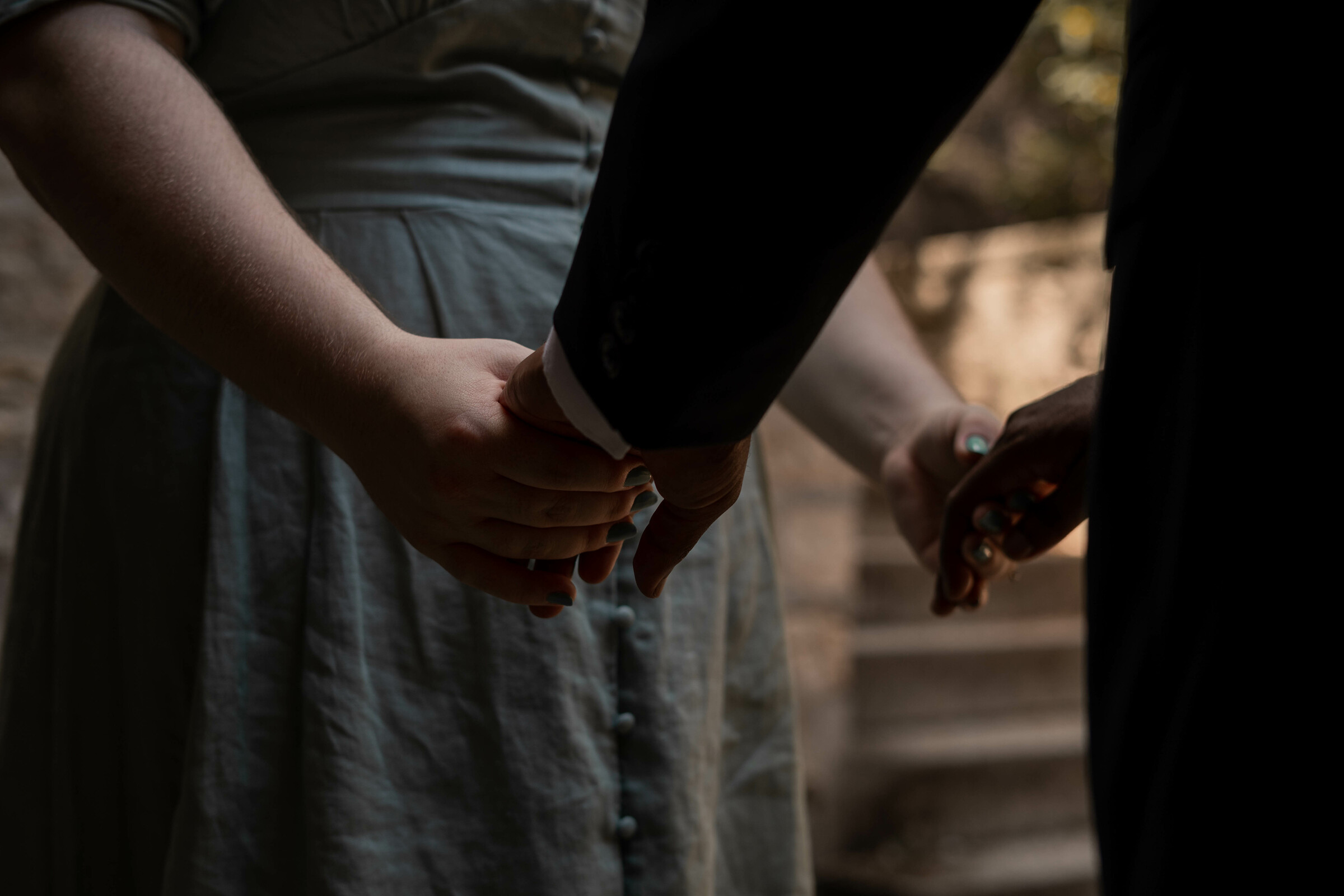
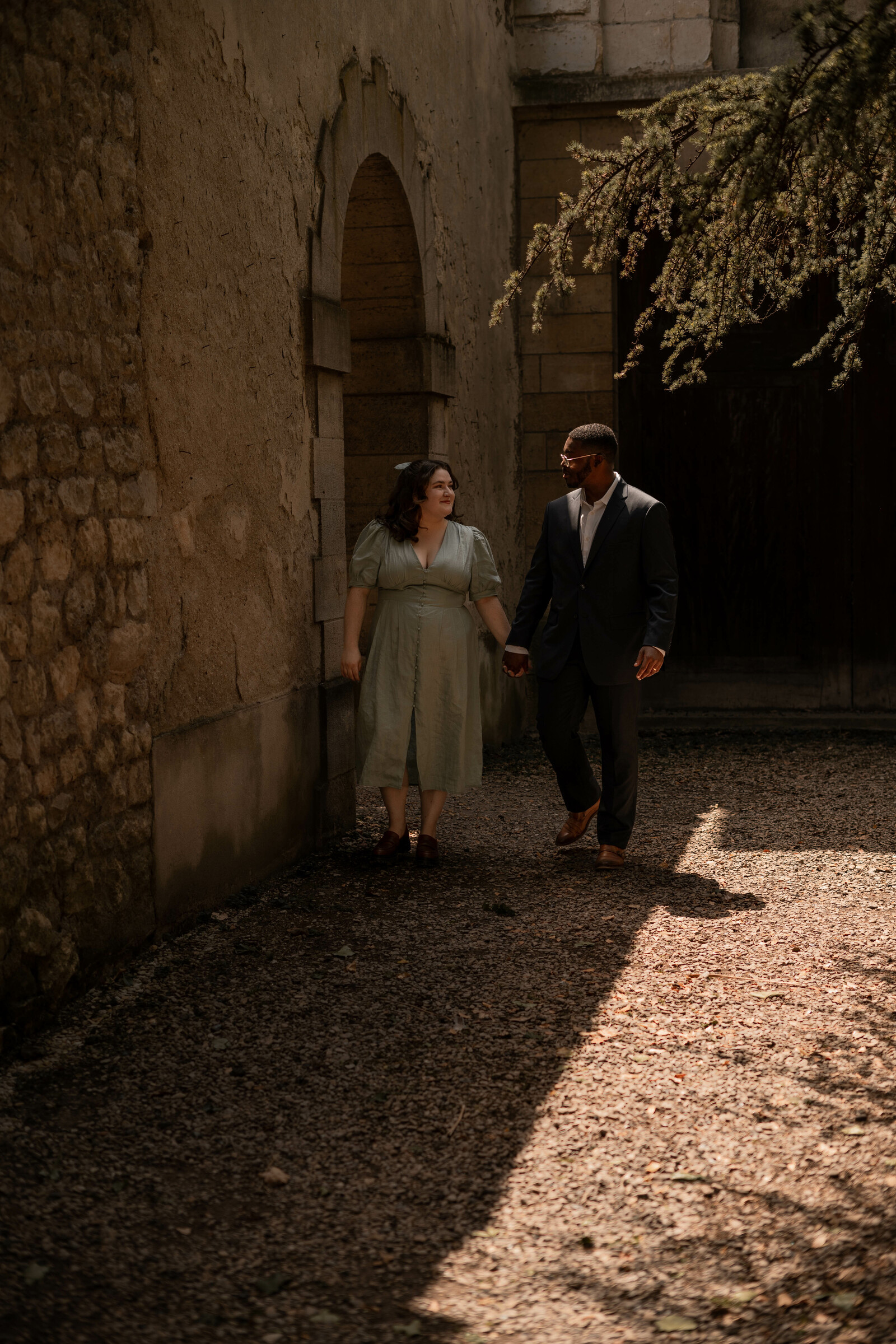
While the process for getting married in France as foreigners seems relatively straightforward on paper, it was actually a tedious and time-consuming ordeal! However, we can confidently say that all of the difficulties we encountered were worth it in the end. Have you ever gotten married in a foreign country? Do you have plans to get married soon? Want to know more about our marriage experience in France? Let us know in a comment!
Learn more about getting married in France as Americans!
You may also like…
You May Also Like

All About French Brunch: What You Need to Know About the Paris Brunch Scene
January 1, 2025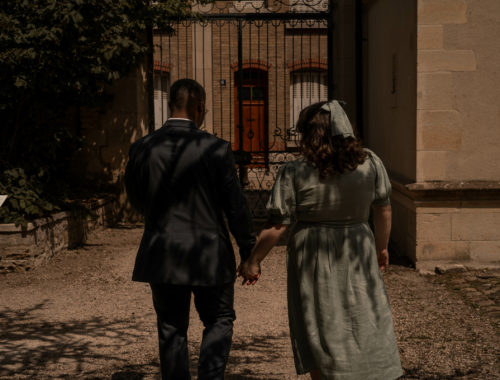
How To Get Married In France as Two Foreigners: Civil Ceremony Day
September 21, 2022


4 Comments
ProfP
Félicitations ! Vous êtes des champions de la bureaucratie française.
Jalen & Maria
Merci !
Cheery
Hi, thank you for sharing your experience. My fiancée and I are planning to get married (elope) in December. Since we are visiting France in December we think it’s best to get married while we are there. Will 6 mos be enough time for us to provide all the requirements to get married?
Jalen & Maria
Hi, Cheery. Congratulations to you and your fiancée! The amount of time needed likely changes from one town hall to another. We are only familiar with that of the Reims town hall for our specific ceremony as two American residents in the city. Six months was just about enough time for us. Feel free to use our detailed timeline at the bottom of this article as a guide, and don’t hesitate to reach out to your respective town hall to ask for more info.